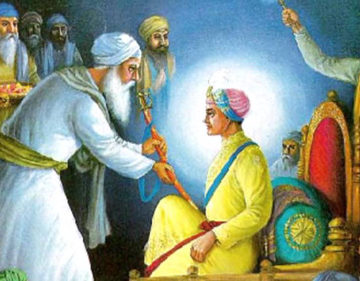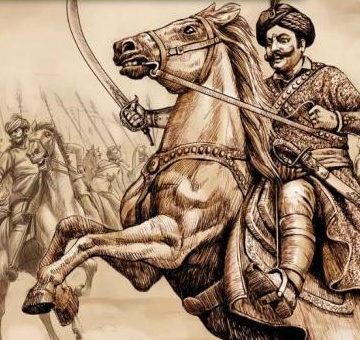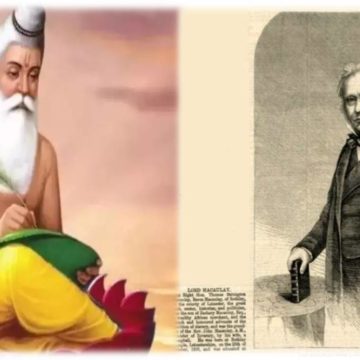Mahadeva is petitioned, and Sivaguru and Aryambha become the vehicles of divine descent.
Category: COMMENTARY
Śaṅkara Charitam – A Re-telling – Chapter – 01
Shri Ramesh Venkatraman delves into detail about the life and the times of Jagadguru Shri Adi Śaṅkaracharya, and his impact on Sanātana Dharma, on the basis of his study of two authoritative texts on Śaṅkara: The Mādhaviya-Śaṅkara-Digvijayam of Jagadaguru Śri Vidyaranya Mahaswami, 12th ācārya of Dakshinamnaya Sringeri Sharada Peetam; and Śaṅkara Charitam, a collection of talks given by the Paramācārya of Kānchi, Jagadaguru Śri Chandrashekarendra Saraswati, the 68th Jagadguru of the Kānchi Kāmakoti Peetha.
In the first chapter of the series of essays that will be published every Thursday (Guruvāsaram), we learn about the circumstances that necessitated the emergence of an avatāra-puruṣa in Kaliyugā.
How Kāntārā Captures Shakti: The Language of Force; The Language of power
The success of a film as openly native and dharmic as Kāntārā is a spark of light for the multiple clusters of the Indic civilisation that have been languishing under ignorance and apathy for decades. Maitreyi Veera explores how certain scenes of the film seem to have hidden meanings corresponding to dharmik texts, including Itihāsa and Purānā
Gyaana and Adhikara
Should trade secrets be revealed to all and sundry? Do the custodians of groundbreaking technology and classified information have the right to shield their secrets from prying eyes? If yes, then the courtesy should be extended to ancient dharmik knowledge systems as well - the concept of Adhikara of access to exclusive information and knowledge; and access should only be granted to those with Adhikara as allowed by Dharma Shastras.
Ayodhya Forever
Dr. Koenraad Elst recounts his recent trip to Ayodhya, while analysing its historicity and devotional zeal; and takes an evaluative look at the road ahead for Hindus to preserve important dharmik sites from the tourism-driven, possibly unnecessary beautification and commercialisation.
Meeri-Peeri In Sikh Panth
Meeri-Peeri is one of the most important principles of Sikhism; Devendra Sharma takes a deep dive into the history of Sikhism to the point of origin of Meeri-Peeri and investigates how far-reaching its effects are on the psyche and conduct of the Sikh Panth.
Religious Nationalism of the Two Nation Theory
In this article, Adarsh Jha digs for facts behind the much talked about "Two Nation Theory"; and how the two parties debating it are faring, 75 years after the partition.
Muhammad Ghori – No More Than Yet Another Barbaric Invader
Ila Krishna counters the arguments presented by Anirudh Kanisetti in his latest article and explores the truth about his claims of Ghori's leniency towards Hindus in general and Prithiviraja Chauhan's kin in particular, and his propagation of Sanskrit and coins with inscriptions of Goddess Lakshmi in Bharata.
Why Prithviraj Chauhan is Revered as the Saviour of Hindus
Samrat Prithviraj Chauhan, often seen only through the lens of Chandar Bardai's Prithviraj Raso, seems to be like any other Rajput king at first - the text emphasises his personal life more than his military might or any other facet.
This article aims to make a well-rounded conclusion about Prithviraj's character and his primary basis for deciding between friend and foe, and establishes him as a hero and saviour for Hindus.
A Call for the Linguistic Decolonisation of Bharat
This essay investigates how the legitimacy of a language supports or facilitates symbolic violence and self-censorship among minority languages, as well as how language laws and practices legitimise languages and how they affect diverse social groups. It also considers what may be done to keep linguistic ideology as a multifaceted phenomenon.









